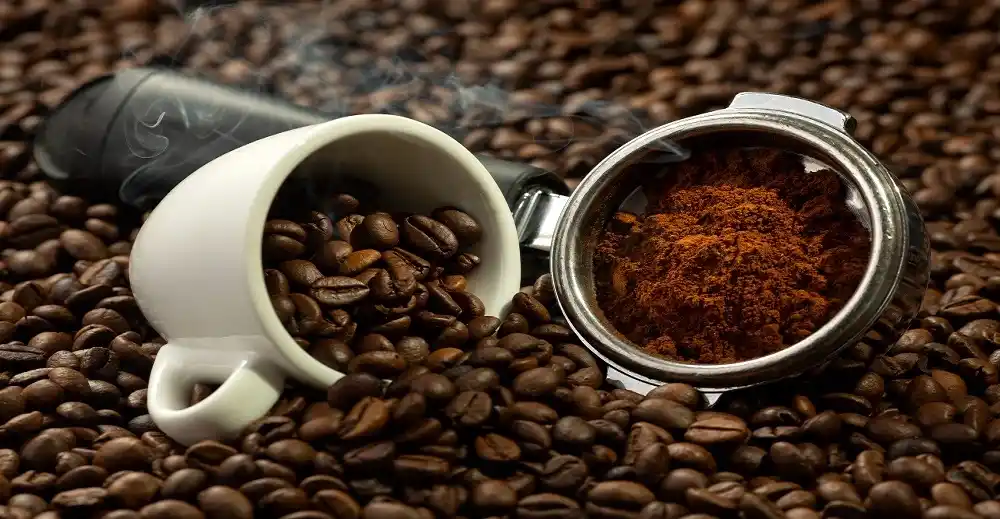Cloud Kitchen – Are You Ready to Grub on Great Food?

The Cloud Kitchen market is expected to grow at a compound annual growth rate of 12.52% to reach a market size worth US$88.889 billion by 2027. This market was valued at US$38.926 billion in 2020.
A cloud kitchen, often known as a "ghost kitchen," is a location where food is prepared and delivered to consumers' households via phone or online ordering systems. They don't typically serve food to customers. in person. They generally work in the food preparation and delivery industry, or they have relationships with food ordering websites like Swiggy, Zomato, Dine Out, and many others. Cloud kitchens have become a popular investment alternative for both new and established restaurateurs looking to start a culinary business. Popular cloud kitchen chains in this area include Faasos by Rebel Foods, Biryani By Kilo, and Freshmenu.
Analysts anticipate that the market will grow due to low capital investment during the forecast period
Cloud kitchens are designed for speed, efficiency, & scale, making running a delivery restaurant low-risk and low investment. They allow a business owner to work with different brands from a single place, boosting the chances of better cost management in existing infrastructure. It also allows for more flexibility. Cloud kitchens may keep an eye on what they're offering by evaluating what works and what doesn't. All of this translates to lower costs, increased efficiency, and lower risks.
The most notable advantage of the cloud kitchen concept is the elimination of expenditures associated with restaurant space, ambiance, furniture, expensive silverware, electrical fixtures, and other such expenses. All of them are eliminated, leaving only the most basic expenses for culinary employees, cooking supplies, kitchen equipment, and certain maintenance costs like power bills. By efficiently leveraging their resources, cloud kitchens may readily invest in new menus and ingredients. Restaurant owners and operators can use real-time consumer data to adjust menu components, set competitive prices, and run their operations more efficiently. Customers can also order from anywhere at any time using cloud kitchens. According to the National Restaurant Association's consumer trends 2020, 52 percent of customers believe that ordering online is more convenient than ordering in person.
The high technological expense and lack of customer interaction can act as a constraint on market growth at a global level
The cloud kitchen market's major hurdle is expensive technological costs. Large technical costs have replaced actual estate costs in cloud kitchen concepts. The reason for this is that these kitchens must connect with numerous meal delivery apps, such as Zomato and Swiggy, for which the kitchen must pay an aggregator tax based on the commissions that these apps charge to function on their platforms. During the projected period, high technology expenses associated with reliance on food aggregator platforms for delivery are expected to be a major limitation on market growth. Another problem that is predicted to be a key stumbling block to overall market growth is a lack of consumer connection. People are more attached to dine-in restaurants because of the environment and their interactions with the personnel, whereas cloud kitchens lack this component.
By business model, the multi-brand cloud kitchen segment is anticipated to witness a significant market share during the forecast period
The multi-brand cloud kitchen category is anticipated to dominate the cloud kitchen market, accounting for a considerable market share. Over the projection period, the segment will rise due to the increasing number of franchised restaurants around the world. Consumer demand for international cuisines and customized delicacies is prompting operators to invest in well-known brands. Furthermore, there are fewer risks associated with opening such restaurants because the franchisor provides training and assistance, which includes everything from equipment and supplies to staff training and marketing. Benefits such as the low risk of creating a cloud kitchen and getting a significant profit share are predicted to fuel the segment's expansion.
By order source, the delivery app segment is anticipated to witness a significant market share during the forecast period
The delivery app segment is expected to rise rapidly during the projection period. Delivery apps offer an innovative platform for restaurants, franchises, and other food-selling businesses to provide customers with a convenient way to access a variety of selections through a single online mobile gateway. The convenience of having meals delivered at a fair price and promptly has led to an increase in the number of online orders through delivery apps. Increased internet usage, easy access to smartphones, simplified e-banking systems, enhanced food-service logistics, and changing lifestyles are all driving the segment. For example, Zomato, an Indian food delivery company, has 80 million active monthly users and plans to reach 20 million in the coming years.
According to regional analysis, the Cloud Kitchen market in North America is expected to hold a significant share during the projected period
Significant growth is projected in the North American region. Factors such as rising dual-income households, higher consumer purchasing power, access to multiple digital touchpoints, and increased demand for fast food are all promoting the growth of ghost kitchens in the region. Furthermore, as operators become more aware of the benefits of cloud kitchens, several franchised shop outlets and aggregators are establishing cloud or ghost kitchens. Internet penetration and the rise of social media marketing are also propelling market expansion in the region, providing new potential in the global cloud kitchen market.
Furthermore, various market players are implementing strategic initiatives, which are helping to drive the industry forward. For example, The Wendy's Company, a quick-service restaurant chain, has announced a partnership with Rebel Foods, the company behind Faasos, Behrouz Biryani, and Mandarin Oak, to open 250 cloud kitchens across India in September 2021.
COVID-19 Insights
The COVID-19 pandemic has had a detrimental impact on the food sector, but cloud kitchens have benefited. Restaurants have been forced to close owing to lockdowns, which has increased demand for cloud kitchens significantly in the previous year or two. Restaurants were able to survive despite consumer footfall essentially decreasing overnight by employing a cloud kitchen method. According to the National Restaurant Association, 54 percent of restaurant owners have switched to totally off-premises services, while 44 percent have been compelled to temporarily close their doors. While the original intention was to provide takeaway or delivery, many operators are realizing how this strategy may benefit their business in a variety of ways.
Cloud Kitchen Market Scope:
| Report Metric | Details |
| Market Size Value in 2020 | US$38.926 billion |
| Market Size Value in 2027 | US$88.889 billion |
| Growth Rate | CAGR of 12.52% from 2020 to 2027 |
| Base Year | 2020 |
| Forecast Period | 2022–2027 |
| Forecast Unit (Value) | USD Billion |
| Segments Covered | Business Model, Order Source, And Geography |
| Regions Covered | North America, South America, Europe, Middle East and Africa, Asia Pacific |
| Companies covered | KLC Virtual Restaurants, The Food Corridor (Fort Collins, CO), Kitopi, CloudKitchen, Muy, Mimic, Franklin Junction, Zullu, Virturant, Keatz, Travis Kalanick, Karma Kitchen, Deliveroo |
| Customization scope | Free report customization with purchase |
Get in Touch
Interested in this topic? Contact our analysts for more details.
Latest Blogs

Solar Control Window Films Market expected to reach USD 1,224.951 million by 2030
RecentlyTop Companies Leading the Silicon-Based Capacitor Revolution
Recently
The Role of Chemical Blowing Agents in Sustainable Foaming Solutions
Recently
Top 10 Emerging Beverages Set to Dominate the Market in the Coming Years
Recently